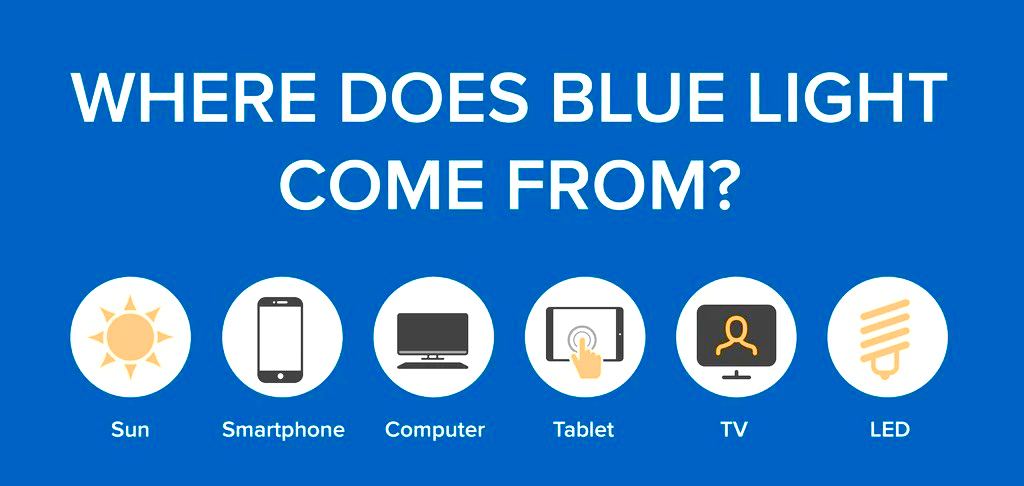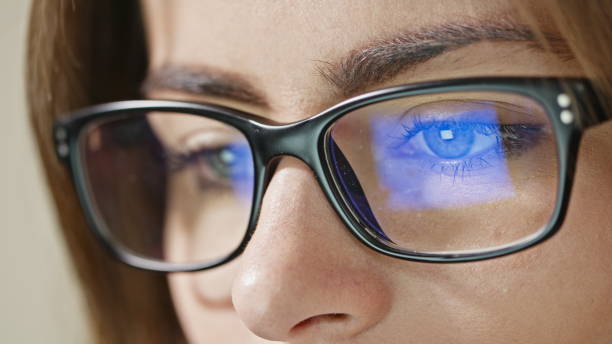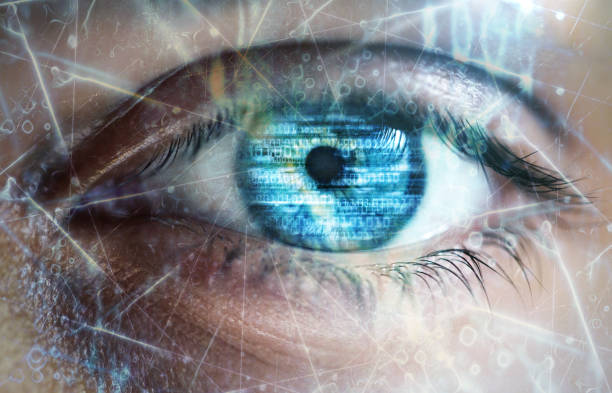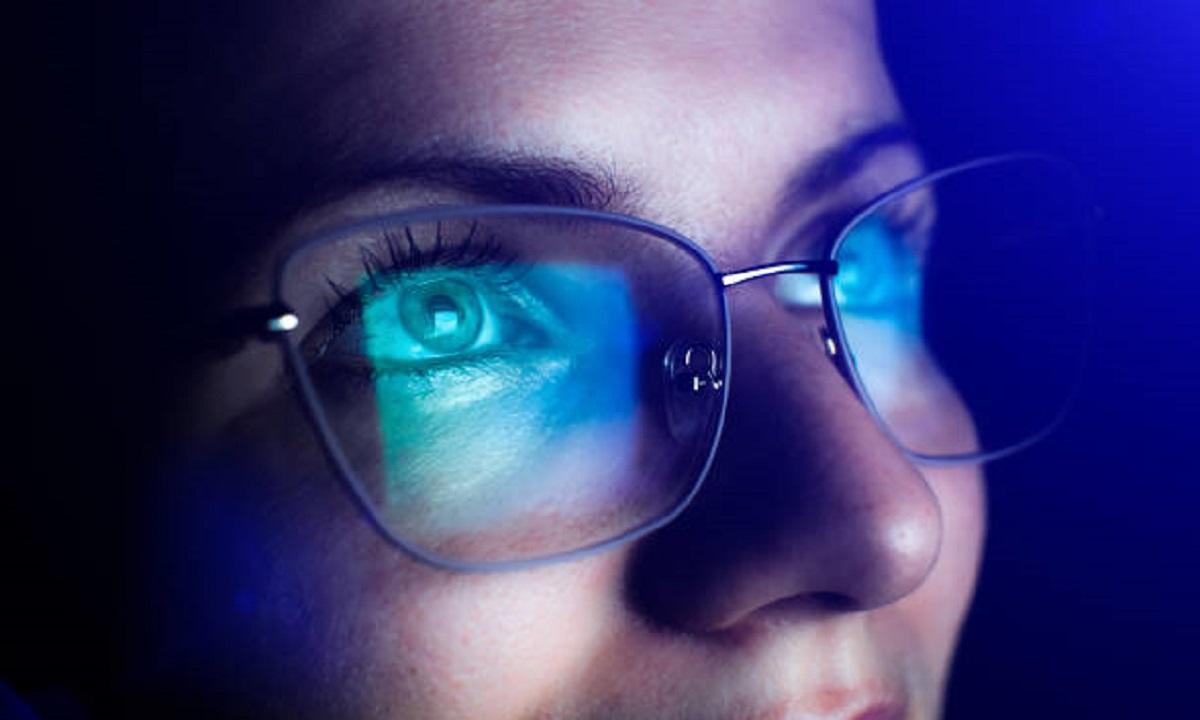What Are The Beneficial And Harmful Effects Of Blue Light?
We can see our topic today but need to learn more about it. It has effects that are both good and bad. But as time goes on, the effect of this thing turns worse and worse. This thing is all around us, and too many of us aren’t taking it seriously enough. We are talking about blue light.
Blue light is part of the visible spectrum with a short wavelength and high energy. It is part of the visible light spectrum, including red, orange, yellow, green, and violet colors. Blue light is prevalent in sunlight and emitted by various artificial sources, including electronic devices like smartphones, tablets, computers, and LED lights.
As we said, blue light has both positives and negatives, but the negatives are piling up too much over time. We will discuss the common sources of blue lights, both natural and artificial. We will discuss in detail the good and bad effects of blue light and what precautions you must take. Interestingly, there are foods you can eat that are said to help relieve some of the bad effects of blue light, which we will also discuss. There is much to go over, and we don’t want you to stare at the screen for too long.
Sources of Blue Light

The first thing you need to know about blue light is its sources. Just a few paragraphs ago, we mentioned some of those sources. But here they are with more explanations:
- Sunlight: See that big ball of fire in the sky that we call the Sun! That’s the biggest source of natural blue light. When sunlight reaches our planet, that light hits our atmosphere, and it scatters. The shorter blue wavelengths get scattered, which causes our sky to look blue during the day.
- Electronic Devices: Smartphones, tablets, and computers are the most common blue light. In the evening or night, these devices expose us to more blue light. These devices are the biggest causes of sleeping issues.
- LED Lights: LED lights are commonly used for household lighting and emit blue lights. While they might be very energy-efficient and long-lasting, they lead to blue light exposure in indoor environments.
- Fluorescent Bulbs: Like LED lights, fluorescent bulbs also emit blue lights and are commonly seen in office buildings, schools, and supermarkets.
- Television Screens: Watching television, especially in a dark room, can expose us to much blue light. Watching TV late into the night will potentially impact your sleep quality.
Beneficial Effects of Blue Light
We keep talking about the bad side of blue light, and there are some, but this light also does some good. So, let’s talk about the beneficial effects of blue light on our body and mind. Here are seven good effects of blue light you should remember:
- Enhances Mood and Alertness: Exposure to blue light during the day improves your mood and makes you more alert. While the natural source is best, artificial blue lights from lighting can give you the same feeling.
- Regulates Circadian Rhythm: Circadian rhythm is our body’s internal clock, which manages our sleep-wake cycle. Daytime natural blue light synchronizes this rhythm. The synchronization keeps us awake and alert during daylight and sleepy at night.
- Boosts Cognitive Function: Various studies have found that blue light enhances cognitive functions like memory retention, attention, and reaction times. Some suggest that blue light stimulates certain brain areas related to cognition.
- Improves Sleep Quality: Regulating blue light exposure during the day and night ensures better sleep quality. This happens due to melatonin production, the hormone that regulates sleep.
- Enhances Visual Acuity: Blue light exposure is crucial for improved eyesight and contrast sensitivity. Exposure is stated to provide sharper vision and better overall visual performance.
- Regulates Hormonal Balance: Alongside producing melatonin, blue light also helps with serotonin and cortisol production. These two chemicals regulate mood, energy levels, and stress response.
- Supports Skin Health: Blue light might also positively affect your skin. Research states that it can improve conditions such as acne. Blue light therapy can reduce acne lesions and inflammation, leading to healthier skin.
There are benefits of blue light sunglasses that you can enjoy just like blue light itself. Find out more about it from us.
Harmful Effects of Blue Light

People say all good things must come to an end, and we’re done talking about the good side of blue light, and now we must speak of the bad. There are just as many bad sides as good regarding blue light. Here are some of the biggest harmful effects of blue light:
- Disrupts Sleep Patterns: Excess exposure to blue light during evenings and nights can affect your natural sleep-wake cycle. The effect can come off as difficulty falling asleep, poor sleep quality, and insufficient rest.
- Causes Eye Strain and Fatigue: Excess exposure to blue light from electronic devices is shown to cause digital eye strain. Symptoms include dry eyes, blurred vision, eye discomfort, and headaches. They led to being unable to use screens for extended periods.
- Increases Risk of Macular Degeneration: Excess exposure to blue light daily from artificial sources has been found to cause age-related macular degeneration (AMD). It has become the biggest cause of vision loss in older adults.
- Impairs Sleep Quality: Due to excess blue light disrupting your circadian rhythm, individuals tend to have problems falling asleep, frequently wake up at night, and have restless sleep overall. These all impact their energy levels and daytime functioning.
- Affects Mood and Mental Health: Researchers have found a potential link between excessive screen time, blue light exposure, and mental health issues. Excessive screen time contributes to feelings of irritability, mood swings, and decreased well-being.
- Promotes Premature Skin Aging: Blue light exposure may contribute to generating free radicals and oxidative stress. This can lead to collagen degradation, wrinkles, and other signs of aging.
Blue Light Precautions You Must Take

Knowing about the harmful effects of blue light is one thing, and doing something about it is another. To lessen the bad effects of blue light, there are many precautions you can take, and some of them are dead simple. Here are some of our top recommendations:
- Reduce screen time at night: A few hours before you go to sleep, you should avoid electronic devices. We recommend you start to avoid devices at least an hour before sleeping.
- Use Blue Light Filters: Blue filtering apps and blue light screen protectors for every electronic device are available. These filters work by reducing the amount of blue light emitted by screens. Many current smartphones and computers have built-in settings for adjusting blue light levels. There are many blue light eyewear available that act similarly to these filters.
- Take Breaks: One of the best suggestions for reducing the harmful effects of blue lights is to implement the 20-20-20 rule. The rule states: every 20 minutes, look away from and focus on something at least 20 feet away for at least 20 seconds.
- Adjust Lighting Environment: Try to increase the amount of natural light in your surroundings during the day. Also, lower the amount of artificial light in your surroundings during the evening and night; instead, go for warmer, dimmer lighting.
- Follow a Bedtime Routine: Following a relaxing bedtime routine signals your brain that it’s time for sleep. Activities such as reading books, taking warm baths, or practicing relaxation techniques are good choices. A regular bedtime routine can lead to better sleep quality and reduce the impact of blue light exposure on your rest.
Foods That Will Help Protect Your Eyesight

You have heard that carrots are good for your eyes, but do you know why? If you don’t, then you aren’t alone. There are many food choices that you can help with your vision. Here are some of the common ones with explanations:
- Carrots: The oldest suggestion that we know and a good one. This orange vegetable is rich in beta-carotene, related to vitamin A, which helps to maintain healthy vision. They can also prevent night blindness and dry eyes.
- Leafy Greens: We aren’t just talking about kale but all types of greens with leaves, like spinach and collard greens. These leaves have antioxidants such as lutein and zeaxanthin, and they protect your eyes from age-related macular degeneration and cataracts.
- Citrus: Fruits like oranges, grapefruits, and lemons are high in vitamin C. This is another type of antioxidant that supports eye health. It controls the health of blood vessels in the eyes. It may also lower the risk of developing cataracts and macular degeneration.
- Fatty Fish: Salmon, mackerel, and sardines have tons of omega-3 fatty acids. Omega-3s are important for maintaining the structure and function of the retina. It has anti-inflammatory properties and may help reduce the risk of dry eyes and age-related eye diseases.
- Berries: Blueberries, strawberries, and blackberries have antioxidants and vitamins that support eye health. They can improve night vision, reduce inflammation, and protect against eye oxidative stress.
Along with eating the right kinds of foods, there are other things you can do to take care of your eyes. Read about various vision health tips from us.
Further Reading: Protecting Your Eyes from Digital Eye Strain
Conclusion
Blue light is part of the visible light spectrum found in natural and manufactured inventions. This light is why we see our sky as blue in the day. Getting the right blue light from nature or artificial sources has beneficial effects. These effects include making your skin look healthier and boosting cognitive functions.
However, excessive exposure to blue light comes with many harmful effects. From disrupting your sleep to affecting your mood and even causing near blindness are all possible harmful side effects.
The best precaution is to limit your exposure; however, this can be hard to manage. Instead, limit your electronic device usage or take frequent breaks. Another suggestion would be to include certain foods that can improve your eyesight or health.
Your eyes are the window to your soul, so you should do all you can to keep them open and healthy.
FAQs
Does blue light from screens cause permanent eye damage?
No, but prolonged exposure to blue light can contribute to digital eye strain. It may increase the risk of long-term eye problems like macular degeneration.
Do blue light-blocking glasses really work?
Blue light-blocking glasses can help reduce eye strain and improve sleep quality by filtering out harmful blue light emitted by screens.
Can blue light affect my mood?
Yes, exposure to blue light during the day can enhance mood and increase energy levels, while excessive exposure at night may disrupt sleep and contribute to feelings of irritability and fatigue.
How can I reduce blue light exposure at night?
To minimize blue light exposure before bedtime, try to lower screen time to at least an hour before sleep, use devices with night mode settings, and dim indoor lighting.
Are there any benefits to blue light exposure?
Moderate exposure to blue light during the day can help regulate our sleep-wake cycle, improve alertness, and enhance cognitive function.

